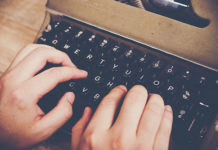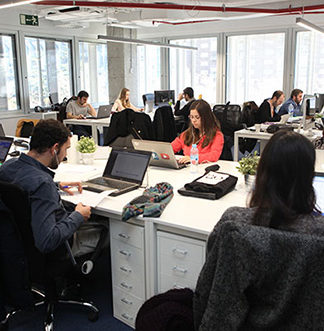April 22
Email
A world of closed libraries is not the best place for an avid reader. The locked doors of bookshops didn’t help. Browsing in either location has not been among life’s pleasures for some time. Once the virus is defeated, I look forward to buying books dealing with its downfall.
In the past few years we were forever being advised that books would soon become obsolete, replaced by various sorts of reading tablets. I couldn’t help noticing that such statements were often made by the very people who sold alternative reading devices, is that a spooky coincidence, or what?
While one has to applaud the fact of fewer trees being translated into books – score one for the rain forests – I still find I have certain reservations about the idea of lumps of almost indestructible plastic being loosed upon the world.
The durability of plastic was all very well when it suited us to believe that Tupperware was sophisticated tableware. But items that outlive their usefulness end up floating in oceans, where they may continue to exist for a hundred years or more before chemistry starts to degrade them.
I keep seeing this picture in my head of a super-species of dolphins who have educated themselves by studying the material inside our abandoned Kindles, or nourished their young on the contents of Earl Tupper’s containers. (If they could prise the lids off. No wonder Tupperware kept food fresh for ages.)
One downside to books, we were told, was their weight and lack of portability when it came to reading matter to pack when going abroad. “Keep taking the tablets,” is the advice most travel agents would have given a holidaymaker before travel agents became more or less obsolete themselves.
Plus – we may be reminded by less careful readers than ourselves – one doesn’t lose one’s place in an electronic book. Bookmarks have become unnecessary, when we can return instantly to where we left off reading, at the flick of a switch or the touch of a button.
Implicit in this convenience, however, is a tacit acceptance of the surreal arrangement whereby books of this sort don’t have proper pages. You can’t scribble notes in the margins, if you are one of those wretches like myself, i.e., an occasional plagiarist. Another reason I sometimes find tablets hard to swallow is that you may no longer claim to be reading “a real page-turner.” Not without a pair of pliers.
Have you ever dropped your reading tablet onto your own upturned face? I have, while lying in bed reading with one hand – so to speak – and trying to arrange my pillows with the other. The resulting nosebleed sent me scurrying in search of a tissue, a fresh pillow, and an emergency paperback novel.
That experience made me wonder why no one has produced a tablet with some sort of handle on it. (Not that traditional books have escaped my inventive ambition, since I often use large clothes pegs to keep hardbacks open where I want them.) As a species, Bakelite tablets are too slippery by far, especially when you are nodding off over a very small glass of wine. (Really.)
Once you have finished an old-style book, you can always donate it to a friend or charity organisation. But neither of these actions is practicable when you are done with an electronic text. For all the further use it is, it might just as well have disappeared into the clouds. (Oh, has it? I see.) In the world of silicone technology – SiliWorld – charity begins and ends at home – as long as you can get a decent signal.
I realise I must be sounding like some latter-day Luddite resisting progress (how well you have come to know me in such a short time.)
But the plain fact of the matter is that I invested heavily in IKEA wall units about 10 years ago, and a single black plastic tablet, no matter how clever an artefact, simply looks daft sitting alone on an empty bookshelf. I think I might eventually just remove it and drop it in the ocean – the bookshelf, I mean. If I can manage to dismantle it.
I still can’t get at that Tupperware sandwich I prepared for the last golf open in St Andrews.
David Aitken






































